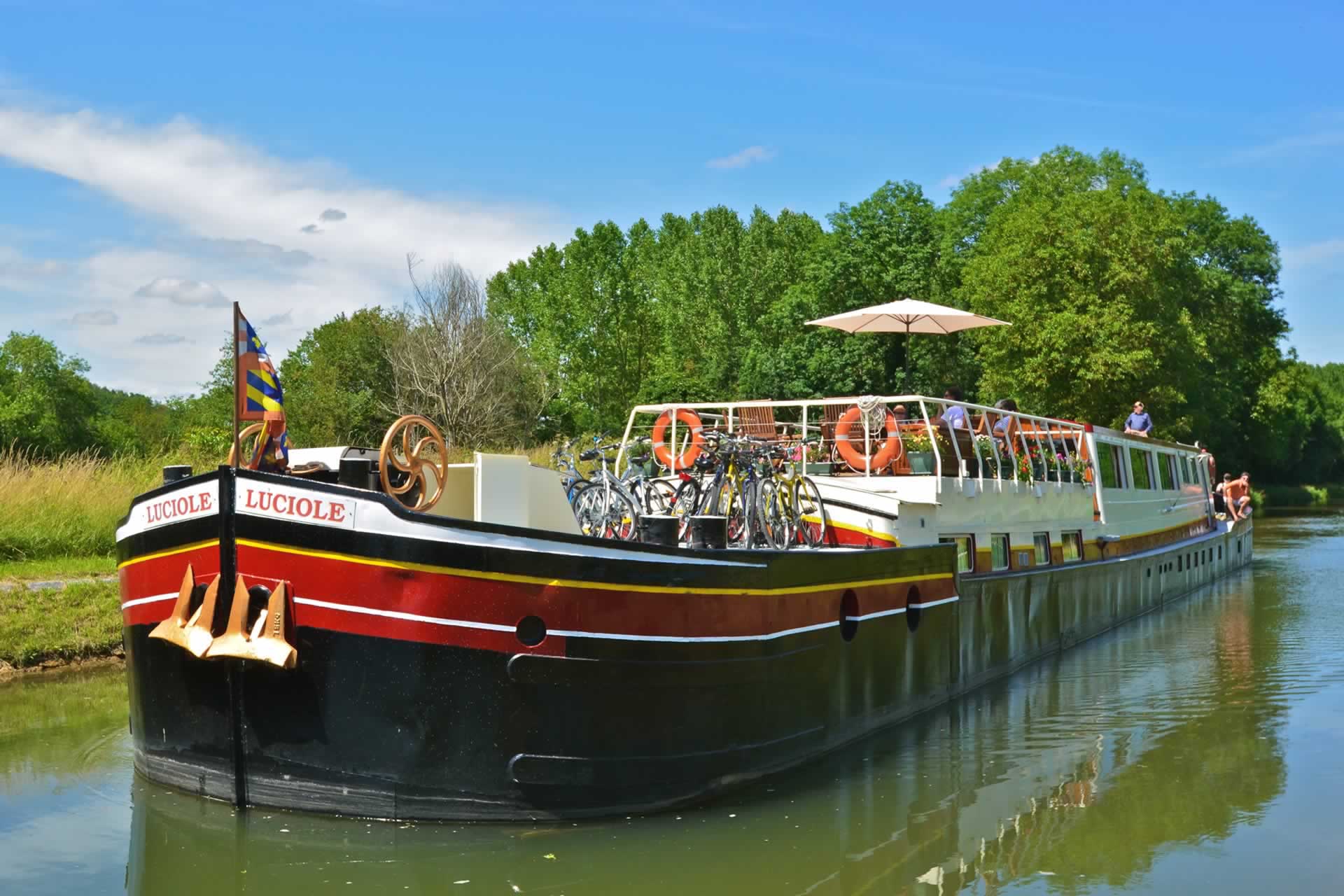- Previous
- |
- All articles
- |
- Next
Channel Crossings
Planning to cross the Channel? If there’s a computer around, then type in ‘Barge Dover Lifeboat Youtube’, and see what can happen.
Planning to cross the Channel? If there’s a computer around, then type in ‘Barge Dover Lifeboat Youtube’, and see what can happen.
That the 65 foot tjalk stays in one piece is a tribute to this kind of barge (for those without access to the Internet, the sea that day was rough). Being towed into the weather puts enormous stress on a boat; our own Luciole, built for inland France, and lightly built, too, would have fallen to bits in these proceedings.
Incidents such as this, in which the lifeboat saves the day, attract all manner of lofty condemnation. The weather, plainly, was unsuitable. Did those who were rescued not know any better? Lives were being risked. Etc. But, at sea, situations develop. You’ve been waiting in harbour a long time, maybe for weeks. Patience is running out. As, perhaps, is money. The crew can only stay so long. The forecast, while by no means perfect, is not too bad. So you set off. Then something happens, a fuel blockage perhaps. While this is sorted, you lose the advantage of a tide. Having delivered yachts myself – some of them erroneously supposed to be sea-going - I can identify.
Once, long ago, we took a wooden cruiser from the Norfolk Broads to Ireland. It is tempting to say that the portion between Wroxham and Great Yarmouth was the trickiest, with such a widespread misinterpretation of the Rule of the Road, were we not informed by the owner, when we arrived in Dublin Bay, that he’d changed his mind. Would we go back to Amsterdam? Time came into it, and the forecast being so-so, we should not have been surprised to be running for dear life into Milford Haven. A pity some idiot in times past had sawn through the frames to improve drainage in the bilges: all that rolling did her no good at all. But we made it.
Years later, when bringing the Arthur from Boston to the Thames, we missed a tide off north Norfolk; then, when the weather blew up, were fortunate to get into Wells. For the record, a Leeds & Liverpool ‘short boat’ of this type not only rolls like an old black pudding, but is halted by every wave. And, since the rudder, being unbalanced, gets washed about, it tends to steer the helmsman, rather than the other way round.
For the later trip onward to Calais, enough forecasts were listened to to fill a medium-sized book (you have to write them down, otherwise a mental fog descends). With caution being the watchword, we put into Ramsgate when a Force 4 breeze was threatened, before proceeding to France in a calm.
On Arthur’s return, three years later, we had the klipper Secunda to do the towing. Like the tjalk in the lifeboat movie, Secunda, built for the meers of the Netherlands, was a sight more seaworthy. But she rolled too!
The precautions on such trips are pretty well known. Check and double check the fuel for gunge. Carry many spare filters, for blockages at sea account for 80% of engine failures. Blank off the windows. And hear all the forecasts, with a readiness to wait, possibly for weeks.
With the barge-owning fraternity growing bigger, the number of Channel or North Sea crossings is increasing. And in each there will, inevitably, be an element of risk. For those who are unsure, hiring a professional delivery skipper might be the answer. Even so: Be Prepared To Wait. That, on the basis of my own experience, is the best advice I can offer
- Previous
- |
- All articles
- |
- Next
Hotel barge Luciole
Cruising since 1976
Phone: 00 44 1625 576880
From USA: 011 44 1625 576880
Whatsapp: 00 33 6 09 92 20 76
Email: info@bargeluciole.com
23 Adlington Road, Bollington
SK10 5JT England
1-2 Quai de la Republique, Auxerre
89000 France
© Hotel Barge Luciole 2026



